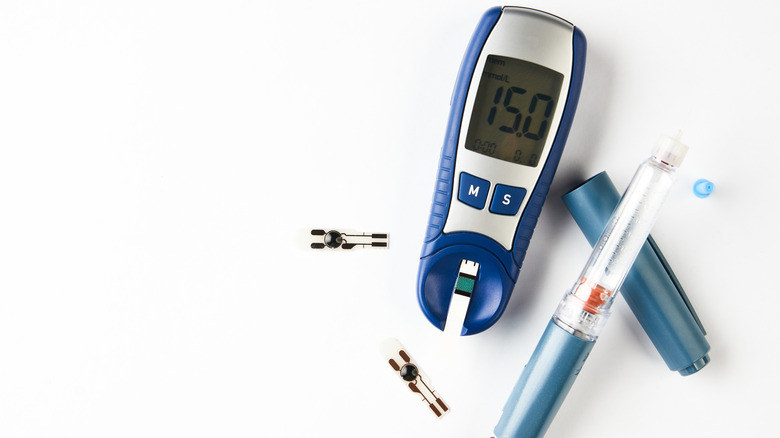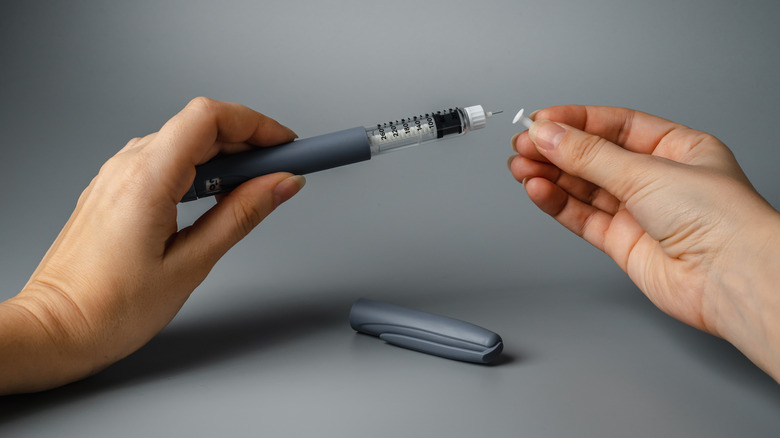Can You Have High Blood Sugar Without Having Diabetes?
High blood sugar and diabetes might sound like the same thing, but they are different conditions. People diagnosed with diabetes often have high blood sugar, or hyperglycemia, but you can have hyperglycemia and not have diabetes (via Healthline).
Hyperglycemia occurs when your blood glucose levels are high, and most people won't have any symptoms until their levels are above normal. Levels ranging between 70 and 99 milligrams per deciliter after no food for eight hours are considered healthy. However, higher levels ranging from 100 to 125 suggest prediabetes, and levels above 126 indicate diabetes (via the Cleveland Clinic). The danger with hyperglycemia is that you may not have any symptoms until your glucose levels are extremely high, sometimes reaching above 180 (via Mayo Clinic).
Hyperglycemia without a diabetes diagnosis is called nondiabetic hyperglycemia, and it is generally the result of a stressful event, trauma, or injury (via Verywell Health). It can also occur after an illness or when the body is under stress and glucose rises as the body produces hormones to fend off sickness (via Healthline). High blood sugar in these types of cases usually resolves after the cause of the injury or trauma heals, but not always (via Verywell Health).
It's important to treat high blood sugar
While you can have high blood sugar without being diagnosed with diabetes, it is important to check your glucose levels and pay attention to any other symptoms you may have. Your doctor may suggest taking insulin if you have symptoms of hyperglycemia to help regulate your glucose (via Verywell Health).
Symptoms of nondiabetic hyperglycemia and high blood sugar are similar. They include feeling thirsty all the time, an unusual amount of urination, headaches, blurry vision, tiredness, nausea, vomiting, and abdominal pain. A history of diabetes in your family, obesity, recent medical procedures, and certain medications can increase the risk of complications associated with nondiabetic hyperglycemia. If you have a fever, persistent diarrhea or nausea, fruity smelling breath, seizures, or confusion, you should make an appointment with your doctor (via Verywell Health).
It is important to treat hyperglycemia because it can lead to diabetic ketoacidosis, a condition that develops slowly over time. Diabetic ketoacidosis is serious and can lead to major complications if left untreated (via the American Diabetes Association). Check with a physician if you have any prolonged symptoms of hyperglycemia.


